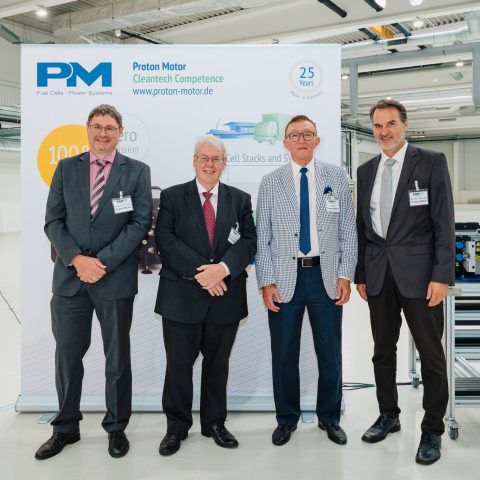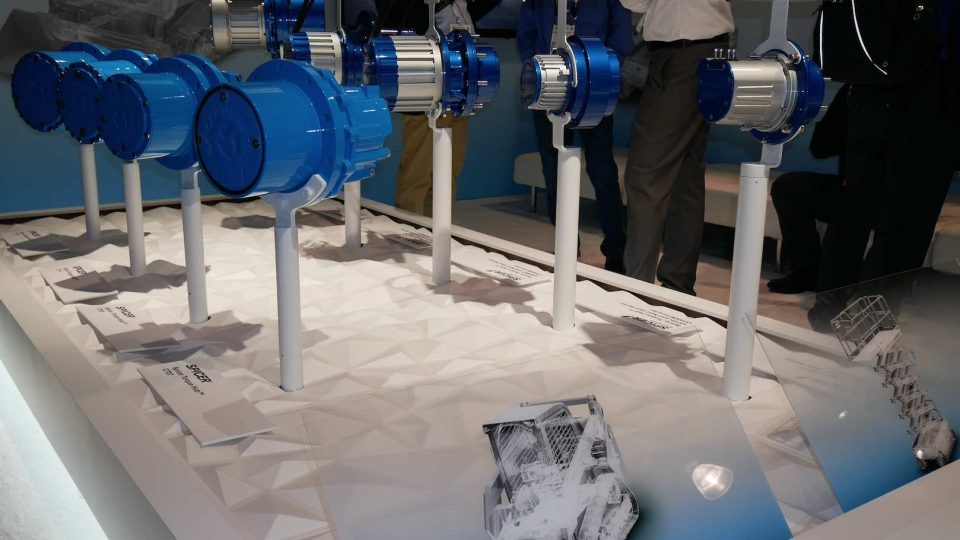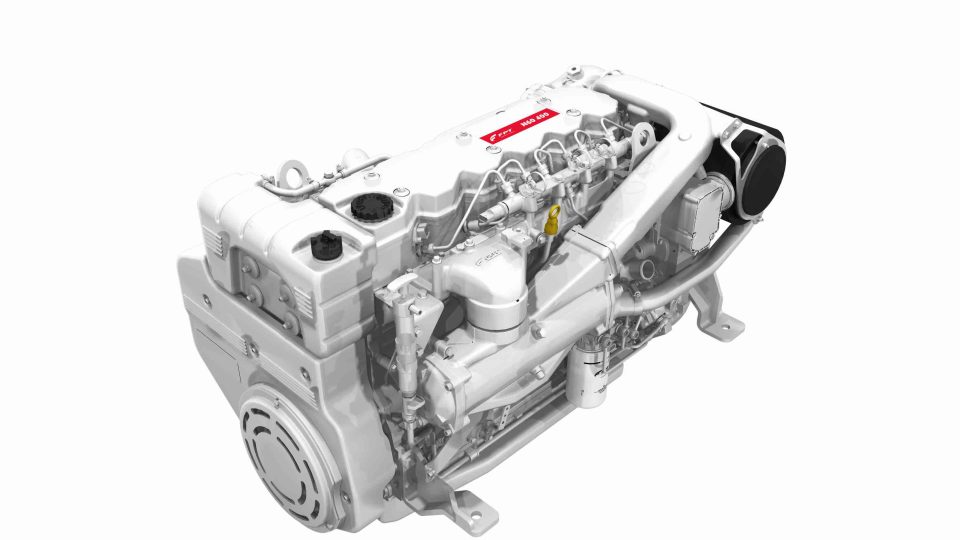Proton Motor on its 25th anniversary presents the new hydrogen fuel cell production facility
The German premium technology manufacturer with a quarter of a century of market experience welcomed customers, industry network and media to its modern second site in the Munich metropolitan region. The event has underlined the importance of the hydrogen economy to achieve climate protection goals.

Since its foundation in 1998, the future vision of premium technology manufacturer Proton Motor Fuel Cell has been to offer climate-neutral solutions for power and heat generation and thus make a sustainable contribution to the energy transition. With the 15-year lease for the new modern 13,500 sq m production facility in Fuerstenfeldbruck in the Munich metropolitan region – on a total commercial space area of 25,700 sq m – Proton Motor is setting a milestone in the direction of industrialisation and serialisation of hydrogen fuel cells. The expansion through the second company location supplements the 6,000 sq m headquarters in Puchheim, about 12km away, which will become a development centre for fuel cell stacks and hydrogen fuel cell engines.
Proton Motor: preparations for the infrastructure concept in full swing
In August 2023, the company’s new additonal site, whose usable space represents a sevenfold increase in production space compared to its current properties, was officially presented to around 80 guests from Proton Motor’s customer base as well as players from the industry and media network at an exclusive event. Preparations for the infrastructure concept incl. assembly of the automated fuel cell production plant (“Stack Robot”) are currently in full swing, so that, according to preliminary planning, the facility can be expected to be operational at the end of 2024. Due to the ceremonial occasion, the potential of the expansion project for sector-specific and cross-sector decarbonisation has received a special emphasis for the hydrogen economy.
Faiz Nahab, Chief Executive Officer of Proton Motor, commented: “Personally, it makes me very proud and happy that my successful team supports the commitment to expand production capacities at the new modern production site. On the occasion of the company’s 25th anniversary, the focus is on the overall performance of Proton Motor Fuel Cell, which makes an entrepreneurial statement about what hydrogen, with its key related technologies such as fuel cells, means for energy security and in the fight against global warming.”
Increasing production capacity for market ramp-up
For a quarter of a century, Proton Motor has been developing innovative hydrogen fuel cell technology into leading Hy brand products for the stationary, automotive, maritime and rail segments. These include, in particular, the emission-free fuel cell systems HyShelter, HyModule, HyFrame, HyRange, HyShip and HyRail. In the context of political awareness that hydrogen and fuel cells will play a fundamental role in overcoming the climate and energy crisis, Proton Motor Fuel Cell expects demand to rise sharply. Therefore, the strategic roadmap envisages an annual increase in production capacity at the new site to 5,000 hydrogen fuel cell engines and gradually up to 30,000 fuel cell stacks. Cost-intensive investment risk is indicated, which alongside organic employee growth, forms the basis of the company’s growth.










